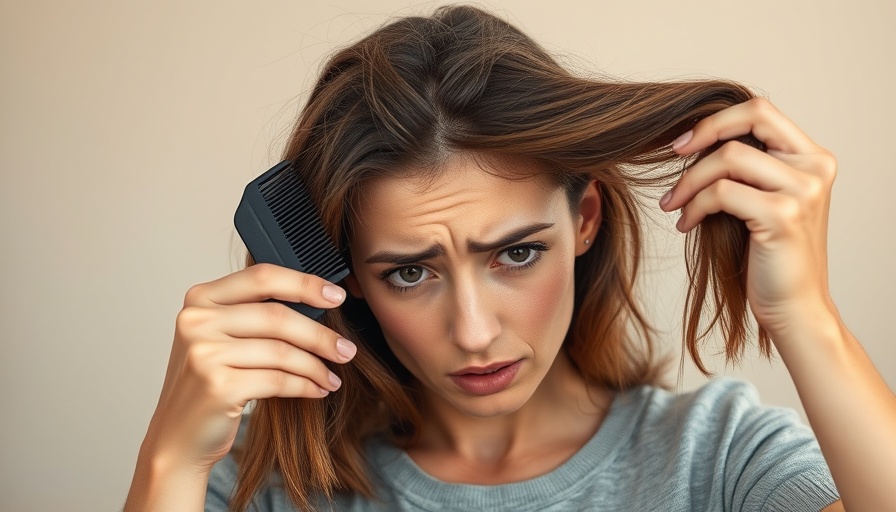
Understanding Hair Loss After Miscarriage
Experiencing a miscarriage can be deeply emotional, filled with grief and uncertainty. Along with the emotional upheaval, many women are surprised to find themselves dealing with another unexpected consequence: hair loss. The physical effects of this traumatic event can lead to changes in hormone levels and hair health, leaving women searching for answers and solutions. Understanding how and why this occurs can be the first step in reclaiming not just your hair, but your well-being.
The Biological Connection: Hormonal Changes and Hair Loss
During pregnancy, there is a significant increase in hormones such as estrogen and progesterone, which support the pregnancy and prolong the hair growth phase. However, after a miscarriage, these hormone levels drop sharply. Dr. Sheena Kapoor, a dermatologist, explains that this sudden hormonal decline triggers a condition known as telogen effluvium. This condition shifts hair follicles prematurely into the resting phase, which can lead to noticeable hair shedding three to six months post-miscarriage.
The Role of Stress in Hair Health
The emotional toll of a miscarriage can also affect how our bodies respond to stress. Studies indicate that high stress levels can elevate cortisol, a hormone that can disrupt hair growth cycles. Many women report feeling overwhelmed, which can impact not only their physical health but also their emotional resilience. Additionally, coping mechanisms—like changes in eating and sleeping habits—after such a traumatic event can further exacerbate the situation, leading to nutritional deficiencies that can negatively affect hair health.
Taking Control: How to Support Healthy Hair Growth
While hair loss after a miscarriage can feel daunting, there are proactive steps you can take to promote new growth and hair health. Here are some practical tips:
- Nourish Your Body: Focus on a diet rich in vitamins and minerals that support healthy hair, such as iron, B vitamins, and vitamin D. Foods like spinach, nuts, eggs, and fish can be beneficial.
- Manage Stress: Engaging in stress-relief activities like yoga, meditation, or simply talking to a trusted friend can help reduce the negative impact of stress on your body.
- Consider Gentle Hair Care: Avoid harsh treatments and opt for gentle, nourishing products to support your hair's recovery. Regular scalp massages can also encourage blood flow to the follicles.
- Consult Healthcare Professionals: If you're experiencing significant hair loss, it may be helpful to consult with a dermatologist or a nutritionist who specializes in postpartum care.
The Timeline of Recovery: What to Expect
Typically, the hair shedding from telogen effluvium becomes noticeable approximately three to six months after a miscarriage. However, many women experience hair loss over an extended period, making it crucial to remain patient and maintain supportive practices during this time. As your body begins to heal emotionally and physically, you’ll likely notice new hair growth, symbolizing both renewal and recovery.
Acknowledging the Emotional Impact
It’s essential to remember that hair loss can be a stark reminder of loss, but it doesn’t define your journey. Connecting with others who have gone through similar experiences can offer comfort and validation. Whether through support groups or online communities, sharing your story can be therapeutic, highlighting the resilience that often emerges from difficult times.
Embracing a Holistic Approach to Healing
Above all, take care of your emotional well-being. After a miscarriage, it’s natural to face a whirlwind of feelings. Acknowledge your emotions and allow yourself the grace to heal. Engaging in self-care, whether that’s pampering your hair, taking a warm bath, or simply jotting down your thoughts in a journal, can provide comfort and promote recovery.
A Final Note: Your Path Forward
While hair loss after a miscarriage can be distressing, understanding the reasons behind it and taking actionable steps can help you navigate this journey. Remember, hair loss is temporary, but the strength you gain can lead to newfound resilience.
Taking care of your physical and emotional health is vital. If you're struggling with hair loss, consider seeking guidance, as knowledge can empower you through this challenging time. As you embark on your healing journey, every little step counts toward reclaiming not just your hair but your life. Embrace each moment, and don’t hesitate to reach out for help when needed.
 Add Row
Add Row  Add
Add 




 Add Row
Add Row  Add
Add 

Write A Comment